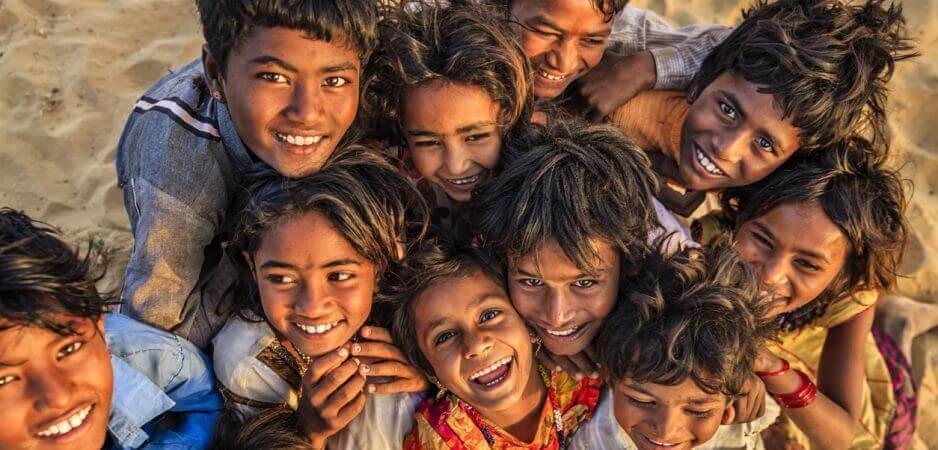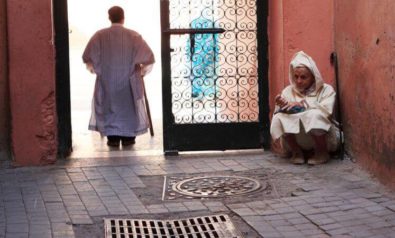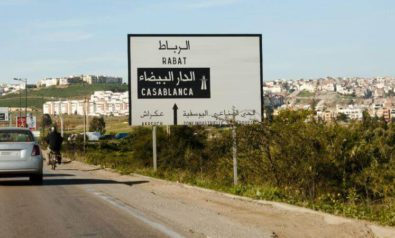Training young minds to create a new global discourse that is diverse, deep and meaningful is the crying need of the hour.
Climate change is a challenge facing the entire planet. Yet different countries have different perspectives even when they agree on the enormity of the challenge. The United States wants China and India to control their emissions. The two Asian giants want the US to share new technology with them in return because they have millions living without electricity and their per capita energy consumption is a fraction of that in the rich world.
Even issues that seem black and white are complex. To make sense of any issue, we need context and multiple perspectives. Yet at the same time, we are all prisoners of our backgrounds and beliefs. Media invariably reflects national or local perspectives whether it is The New York Times or The Japan Times. Moreover, in the era of social media, we are often trapped in echo chambers that confirm our worldview.
Today, traditional journalism faces three challenges. First, in the era of data deluge, news is often noise with journalists chasing headlines like cocker spaniels chasing bits of silver in the wind. Second, in an era of climate change and political upheaval, news often lacks context—historical, economic or philosophical. Third, in an era of globalization and the internet, news is invariably ethnocentric if not partisan.
The solution to these challenges is a new kind of journalism that focuses on the deeper issues behind the news, provides context and brings together diverse perspectives from around the world. Fair Observer has set out its stall to provide this new kind of journalism. Already, we have more than 1,700 contributors from over 70 countries, many of whom we have trained over time.
The 2016 Voices of the World Program was our effort to train over 400 young minds in six countries: India, Morocco, Kenya, Austria, Mexico and the United States. This program was conducted in partnership with the United Nations Foundation and our goals were threefold. First, we sought to inspire our students to tell their own stories in their own voices. Second, we trained them to focus on substantive issues such as water, health and poverty eradication. Third, we taught them the tools of the trade of good journalism so they could tell compelling stories about substantive issues to a global audience.
So, why did we choose to train so many people across so many countries?
We believe the lives and destinies of over 7 billion people on the planet are now inextricably intertwined. Poverty, hunger, health, education and water remain issues that require urgent attention. Yet these issues rarely make it on the news agenda, which is largely top down and often pushes the poor and marginalized out of focus.
 At a time when inequality is increasing exponentially, we have no choice but to focus on the deep issues and the hard choices that confront us on a daily basis. For instance, the Ganges, long considered the holiest of all rivers by most Indians, now has toxins, chemicals and other dangerous bacteria that are almost 3,000 times greater than the limit the World Health Organization deems as safe. Strife-torn South Sudan is facing a terrible water crisis that is exacerbating conflicts between communities.
At a time when inequality is increasing exponentially, we have no choice but to focus on the deep issues and the hard choices that confront us on a daily basis. For instance, the Ganges, long considered the holiest of all rivers by most Indians, now has toxins, chemicals and other dangerous bacteria that are almost 3,000 times greater than the limit the World Health Organization deems as safe. Strife-torn South Sudan is facing a terrible water crisis that is exacerbating conflicts between communities.
To shine the light on issues such as water, health and poverty eradication, we created the 2016 Voices of the World Program. These are global issues and different cultures have a lot to learn from each other. Therefore, we set out to give people control of their own narratives by teaching them the tools of the trade. Our training emphasizes critical thinking, rigorous analysis and engaging storytelling. A good journalist is an observer, an investigator, a raconteur and a keeper of conscience all rolled into one.
We inform and educate the global citizens of today and tomorrow by publishing meaningful stories infused with people’s histories, philosophies and deepest beliefs. The 2016 Voices of the World Program educated a new generation of citizen journalists who will, in turn, educate others through their stories. We look forward to continuing this program in 2017 and beyond.
The views expressed in this article are the author’s own and do not necessarily reflect Fair Observer’s editorial policy.
Photo Credit: Hadynyah
For more than 10 years, Fair Observer has been free, fair and independent. No billionaire owns us, no advertisers control us. We are a reader-supported nonprofit. Unlike many other publications, we keep our content free for readers regardless of where they live or whether they can afford to pay. We have no paywalls and no ads.
In the post-truth era of fake news, echo chambers and filter bubbles, we publish a plurality of perspectives from around the world. Anyone can publish with us, but everyone goes through a rigorous editorial process. So, you get fact-checked, well-reasoned content instead of noise.
We publish 2,500+ voices from 90+ countries. We also conduct education and training programs on subjects ranging from digital media and journalism to writing and critical thinking. This doesn’t come cheap. Servers, editors, trainers and web developers cost money.
Please consider supporting us on a regular basis as a recurring donor or a sustaining member.
Support Fair Observer
We rely on your support for our independence, diversity and quality.
Will you support FO’s journalism?
We rely on your support for our independence, diversity and quality.






